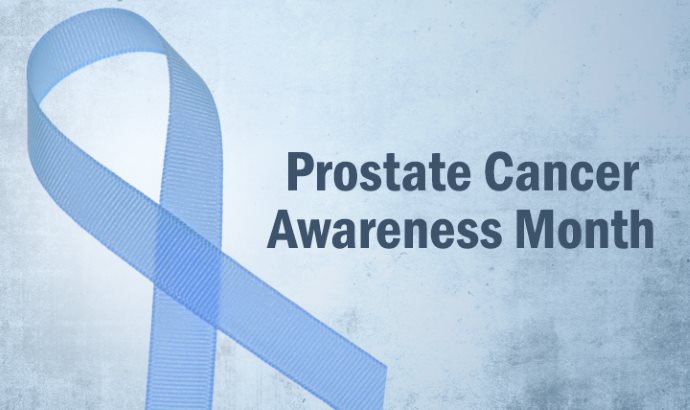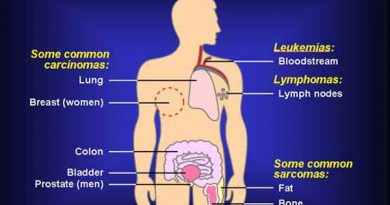Awareness is crucial in the fight against prostate cancer

While prostate cancer does not receive the kind of public attention that some other forms of cancer do, it nevertheless impacts tens of thousands of South African families of all races every year.
No fewer than one in 23 South African men will develop prostate cancer at some point in their lives and it is important that the battle against this disease continues.
Widespread and regular screening, early detection and improved treatment are allowing more and more men to survive prostate cancer. If the cancer is diagnosed early, while it is localised or still confined to the prostate gland itself, the five-year survival rate is almost 100%. It is therefore of critical importance that we improve awareness of this disease.
The prostate gland is a walnut-sized gland that is part of the male reproductive system, producing fluid that is part of male semen. Prostate cancer occurs when abnormal cells grow out of control in the prostate gland. If left untreated, aggressive forms of this cancer may metastasise, or spread to other organs in the body, and become life threatening.
It is important to note that patients with prostate cancer often experience no symptoms whatsoever. For this reason Netcare911 recommends that men over the age of 45 have annual screenings, so that signs of prostate cancer can be detected as early as possible.
If the symptoms do occur they may include the following:
- Blood in urine
- Trouble urinating
- Sudden or urgent need to urinate
- Waking frequently at night to urinate
- Difficulty starting or stopping urine flow
- Weak or interrupted urine flow
- Pain during urination
- Difficulty having an erection and/or painful ejaculations
- Frequent pain or stiffness in the lower back
- Unexplained weight loss
“There are a number of risk factors for prostate cancer, and it is important to note that men of all ages and races may develop the disease. However, advancing age is a particularly important risk factor, with older individuals having a much greater chance of developing the disease”.
Treatment options for prostate cancer include radical prostatectomy — which is the complete surgical removal of the prostate — radiation, cryotherapy, brachytherapy, and hormone therapy.
What everyone should know about prostate cancer
- According to National Health Laboratory Services (NHLS) and National Cancer Registry and Research, prostate cancer is the most common cancer to occur in black South African men and the second most common cancer in white men. More than 4,300 men are newly diagnosed and 2,000 men die from the disease each year.
- More than 900,000 men are diagnosed with prostate cancer each year worldwide.
- The prostate is a gland that forms part of the male reproductive system. It secretes liquid to energise the sperm to fertilise the egg. Prostate cancer occurs when cells in this gland begin to multiply uncontrollably.
- Prostate cancer is often a slow-growing cancer, but it is possible for these cells to spread, or metastasise, outside the gland and into the lymph system and bones.
- This cancer usually develops in men over the age of fifty, and most commonly in men in their sixties, seventies and beyond. Men over the age of 45 should have regular check-ups, at least once a year.
- The screening process should ideally include a rectal examination and a PSA blood test, both of which can help to indicate whether cancer is present.
- There are three primary treatments: the surgical removal of the prostate (radical prostatectomy), brachytherapy and external beam radiation. In the case of older men, whose cancer is often slower to develop, doctors may recommend watchful waiting i.e. doing nothing but having regular tests to ensure the cancer has remained slow growing.
- Radical prostatectomy may be performed though traditional surgical means (i.e. scalpel incision) or laparoscopically. The da Vinci surgical robotic systems introduced by Netcare in Johannesburg and Cape Town offer an additional highly effective treatment option to patients with cancer that is confined to the prostate.
- Laparoscopic prostatectomy, which is a minimally invasive surgical option in which the surgeon navigates surgical tools and eyepiece inside the body, is difficult to master and is offered only through a few experts in South Africa.
- Some 80% of all radical prostatectomies are now done with assistance of robotic technology in the United States.
- Seven urologists have been trained locally and in Belgium on the da Vinci technology by means of a Netcare organised training course.
- The da Vinci surgical technology delivers consistently good outcomes for patients compared to the more traditional forms of surgery for prostate cancer, and also results in fewer complications.
- The da Vinci surgical system enables the practiced surgeon to operate within finer margins, which means there is less chance of leaving any cancerous tissue behind, providing good cancer control.
“Early Detection of Cancer Greatly Increases the Chances of Successful Treatment”



